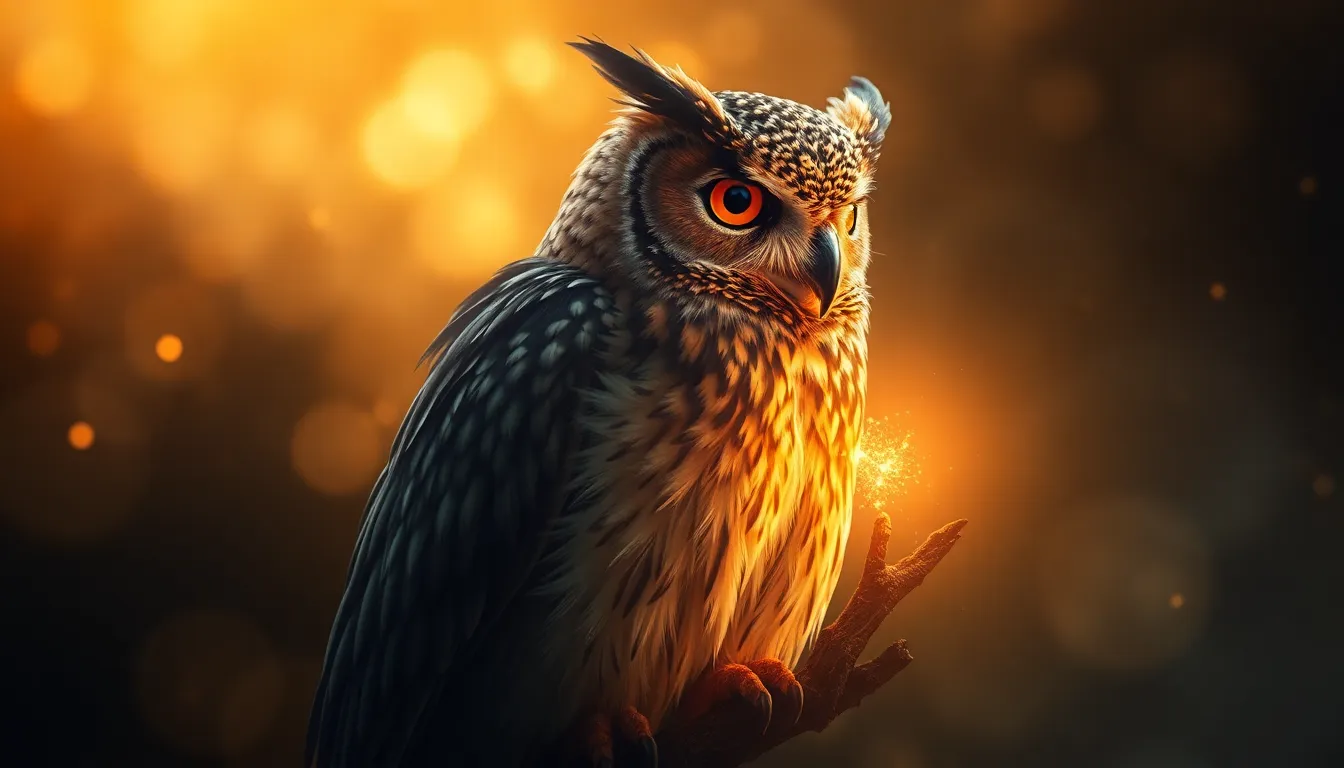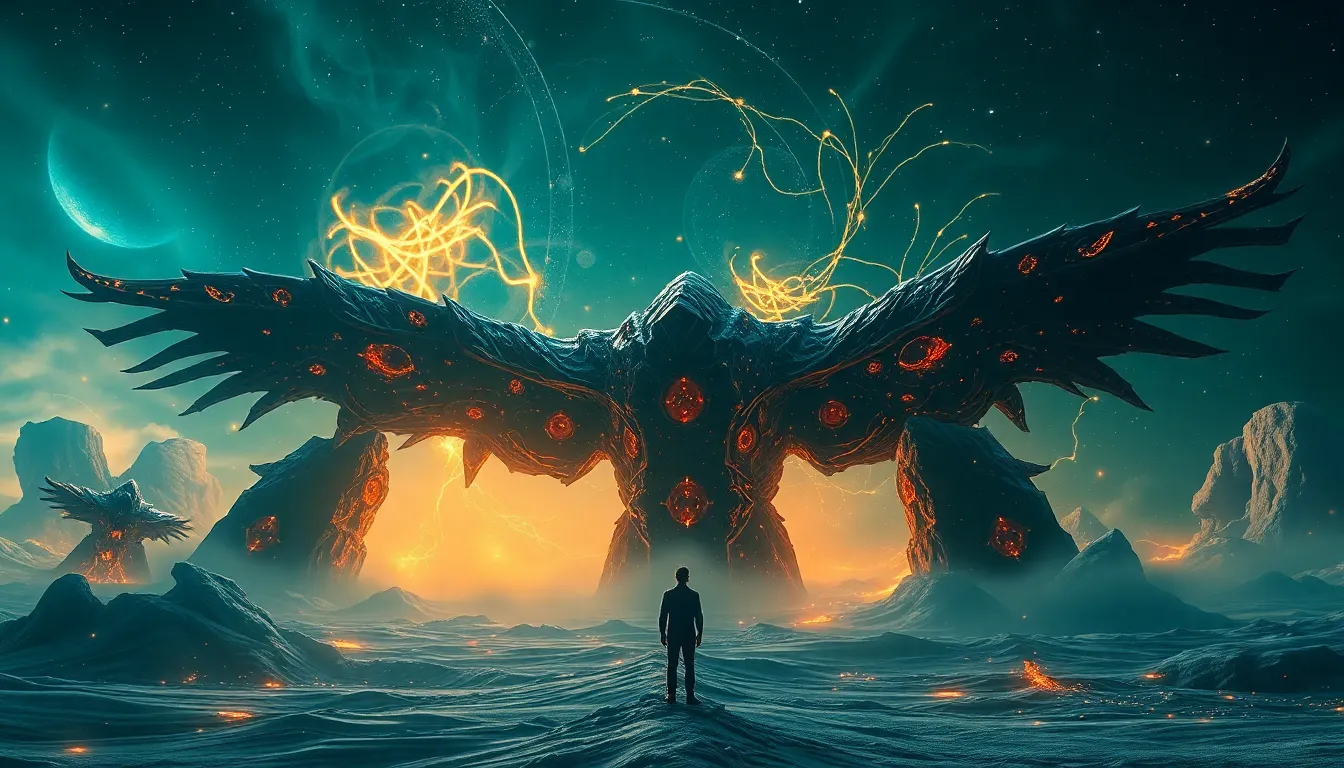The Symbolism of the Owl in Mythology: Wisdom or Omen?
I. Introduction
The owl has long been a creature of fascination and intrigue across various cultures and mythologies. With its striking appearance, nocturnal habits, and haunting calls, the owl represents a complex tapestry of symbolism that intertwines wisdom and foreboding.
This article explores the dual nature of the owl as both a symbol of wisdom and an omen of death, delving into its historical context, cultural interpretations, and psychological significance. Understanding the owl’s multifaceted symbolism allows us to appreciate its role in human thought and creativity.
II. Historical Context of Owl Symbolism
The symbolism of the owl is steeped in history, with interpretations varying widely among ancient civilizations.
- Ancient Civilizations: In Greece, owls were associated with Athena, the goddess of wisdom, while in some Native American cultures, they were seen as omens of death.
- Prehistoric Art: Evidence of owls in cave paintings and artifacts suggests that they have been symbolic creatures for thousands of years.
- Evolution Through the Ages: The meanings attributed to owls have evolved, reflecting the changing dynamics of human culture and belief systems.
III. The Owl as a Symbol of Wisdom
Owls are often regarded as symbols of wisdom and knowledge. This association can be traced back to various historical narratives and cultural representations.
- Athena and Greek Mythology: The owl is closely tied to Athena, who was often depicted with an owl perched on her shoulder, symbolizing her insight and wisdom.
- Literary Representations: Throughout literature, owls are frequently portrayed as wise characters, embodying knowledge and thoughtful reflection.
- Global Connections to Knowledge: Many cultures view owls as guardians of sacred knowledge, linking them to education and enlightenment.
IV. The Owl as an Omen of Death
Conversely, the owl also has a darker side, often seen as a harbinger of doom and death.
- Folklore and Superstitions: Many cultures believe that the presence or call of an owl signals impending death or misfortune.
- Native American Mythology: In various tribes, owls are viewed as messengers of the spirit world, with specific roles in death rituals.
- Cultural Interpretations: The sound of an owl at night has been interpreted differently across cultures, sometimes seen as a warning or a call to the unknown.
V. Comparative Symbolism: Owls in Different Cultures
Exploring owls across different cultures reveals the diverse interpretations of this fascinating creature.
- Egyptian Mythology: Owls were seen as symbols of the afterlife, often depicted in tombs and associated with the protection of souls.
- African Folklore: In various African cultures, owls are linked to witchcraft and the supernatural, often viewed with suspicion.
- Asian Beliefs: In some Asian cultures, owls are seen as protective spirits, while in others, they are associated with misfortune.
VI. Psychological Perspectives on Owl Symbolism
The owl’s symbolism extends into psychological realms, particularly concerning the unconscious and intuition.
- Jungian Archetypes: The owl represents the unconscious mind, embodying hidden knowledge and the mystery of the psyche.
- Dream Interpretation: Owls appearing in dreams often signify wisdom, intuition, or a need to confront hidden fears.
- Modern Psychology: Owls are frequently associated with intuition and insight, providing a symbol for those seeking deeper understanding.
VII. Artistic Representations of Owls
Owls have inspired countless artistic expressions throughout history.
- Visual Arts: From ancient sculptures to modern paintings, owls have been depicted in myriad ways, often symbolizing wisdom or mystery.
- Contemporary Pop Culture: Owls have made their mark in literature and film, often representing characters who possess wisdom or insight.
- Tattoos and Personal Expressions: Many individuals choose owl tattoos as symbols of their values, reflecting wisdom, protection, or personal growth.
VIII. The Owl in Modern Spirituality and New Age Beliefs
In contemporary spirituality, the owl has taken on new meanings, often viewed as a powerful spirit animal.
- Spirit Animal and Guide: Many believe that encountering an owl signifies a spiritual awakening or guidance from the universe.
- Rituals and Practices: Owls are incorporated into various rituals, often symbolizing knowledge and the exploration of the unknown.
- Role in Witchcraft: In modern witchcraft and paganism, owls are revered as symbols of wisdom and protection, often featured in spells and rituals.
IX. The Dichotomy of Owl Symbolism: Wisdom vs. Omen
The coexistence of the owl’s dual meanings—wisdom and omen—reflects a rich tapestry of cultural beliefs and perspectives.
- Analysis of Dual Meanings: The dual nature of the owl highlights the complexity of human perception, where one symbol can embody contrasting ideas.
- Cultural Shifts: Over time, the perception of owls has shifted, influenced by societal changes, folklore, and evolving beliefs.
- Case Studies: Examining specific cultural narratives reveals how owls are simultaneously revered and feared across different societies.
In conclusion, the symbolism of the owl is a profound reflection of humanity’s relationship with nature, knowledge, and the unknown. Whether regarded as a wise guardian or a foreboding presence, the owl continues to captivate our imagination and inspire countless interpretations in mythology and beyond.




